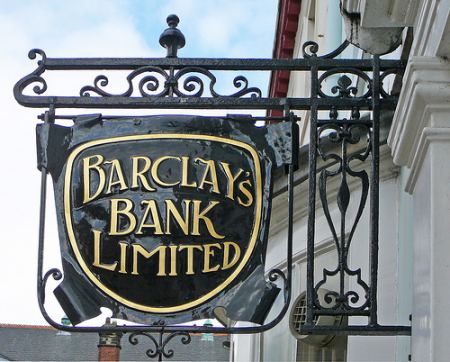‘Quakers, Coercion and pre-modern Growth: Why Friends’ Formal Institutions for Contract Enforcement Did Not Matter for Early Modern Trade Expansion’
by Ester Sahle (University of Bremen)
 In the wake of the Libor scandal in 2012, Barclay’s bank suffered severe reputational damage. In response, its CEO promised a return to the bank’s Quaker roots. With this he referred to Barclay’s history as a Quaker-founded bank, and the proverbial Quaker honesty. The idea of the honest Quaker businessman is part of popular culture and historians have argued that honesty in business was an inherent trait of Quakerism from its beginnings.
In the wake of the Libor scandal in 2012, Barclay’s bank suffered severe reputational damage. In response, its CEO promised a return to the bank’s Quaker roots. With this he referred to Barclay’s history as a Quaker-founded bank, and the proverbial Quaker honesty. The idea of the honest Quaker businessman is part of popular culture and historians have argued that honesty in business was an inherent trait of Quakerism from its beginnings.
The Society of Friends, learned opinion would have it, disowned culpable bankrupts. Thereby, it created an incentive for Friends to be honest in their conduct of business. The empirical basis for these claims however is curiously thin. The literature cites few actual instances of disownments for business-related offences from the seventeenth and eighteenth centuries. Most known cases stem from the nineteenth century, when this was indeed common practice. The story of Quaker business honesty is thus based on a strong assumption of institutional and cultural continuity.
The Library of the Society of Friends holds records of London Quaker meetings dating back to the 1660s, when Friends first appeared in the capital. Consulting Quaker meetings’ minutes, disciplinary records, as well as journals and letters of London Quaker businessmen, I conducted the first large scale empirical study of London Quaker meeting’s attitudes towards debt and bankruptcy, c.1660 – 1800.
Surprisingly, these meetings rarely sanctioned business offenders prior to the 1750s. For about 100 years after its conception, the Society of Friends showed no particular interest in its members’ conduct of business. What is more, the letters and diaries of Quaker businessmen in this period contain no evidence that that they feared repercussions from the Society. Quaker businessmen in financial difficulties discussed their impending bankruptcy procedures, or fear of being incarcerated for debt. The possibility of disownment from the Society however, did not figure among their concerns. This indicates that the punishment of offenders was not common enough to work as a deterrence.
From the 1750s onwards, however, this changed. Numbers of disownments for business-related offences skyrocketed. The last decades of the eighteenth century saw far more disownments for business-related offences than the 100 years before.
What caused this change? The new emphasis on honesty in business was part of the Quaker reformation, a movement within Quakerism which refocused the sect’s ideals. Reform movements within religious denominations are not uncommon, what set the Quaker reformation apart was its stated emphasis on protecting the Society’s reputation, and focus on business conduct.
These priorities were a response to a political crisis of the 1750s, which took place in the Quaker-founded colony of Pennsylvania. Erupting over internal disagreements about who was to cover the expenses for the colony’s defense during the Seven Years War, it led to a public scandal which shook Quakerism across the Atlantic World. Contemporary media accused the Quakers of failing to protect the colony’s population from French soldiers and native American raiders. Quaker politicians supposed motivation, their pacifist doctrine was merely a mask for selfish greed. Pamphlets published in London attacked individual Quaker businessmen as war profiteers, who were accumulating fortunes at the expense of the lives of innocent civilians.
In other words, just like Barclay’s Bank in the 21st century, the mid-eighteenth century Quakerism suffered severe reputational damage. The sect’s new focus on honesty in business was a response to this. The Society of Friends conducted an exercise of corporate responsibility, which was a tremendous success – so successful that 250 years later, Quakerism and honesty remain inseparable in the minds of lay people and Historians alike.
Friends went on to become leaders in important ethical concerns, such as the abolition of the slave trade. Today, the Society of Friends indeed stands for an exceptional ethical approach to many areas of public life. What this story tells us is that taking action against reputational damage can lead to institutional change. And institutions shape culture. In other words, corporate social responsibility can indeed lead to a better conduct of business, to the benefit of society as a whole.

